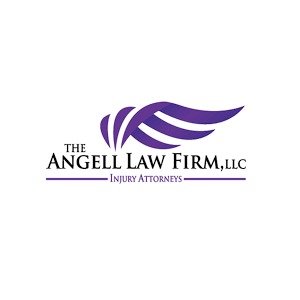Best Birth Injury Lawyers in Atlanta
Share your needs with us, get contacted by law firms.
Free. Takes 2 min.
List of the best lawyers in Atlanta, United States
About Birth Injury Law in Atlanta, United States
Birth injury refers to any harm experienced by a newborn during the birthing process. These injuries can have long-lasting effects on the child's development and well-being. In Atlanta, United States, birth injury law deals with the legal rights and remedies available to those whose newborns have suffered injuries due to medical negligence or malpractice.
Why You May Need a Lawyer
It is essential to consult a birth injury lawyer if you believe your child's injury was a result of medical negligence. A lawyer can help you navigate the complex legal system and guide you through the following common situations:
- Failure to adequately monitor the mother and baby during labor
- Misuse of medical instruments, such as forceps or vacuum extractors
- Delayed or improper response to fetal distress
- Medication errors during pregnancy, labor, or delivery
- Inadequate prenatal care
Local Laws Overview
Birth injury cases in Atlanta, United States are primarily governed by medical malpractice laws. To pursue a successful birth injury claim, you must prove that the healthcare provider's negligence directly caused harm to your child. It is vital to consult with a local attorney who is familiar with the specific statutes, regulations, and court decisions that apply to birth injury cases in Atlanta.
Frequently Asked Questions
1. Can I file a birth injury claim if my child was born with a pre-existing condition?
Yes, you can still pursue a birth injury claim if medical negligence worsened an existing condition or caused additional harm to your child during birth.
2. What compensation can I expect in a birth injury lawsuit?
The compensation you may receive in a birth injury lawsuit can vary depending on the details of your case. It may include medical expenses, future medical care, therapy costs, pain and suffering, emotional distress, and loss of earning capacity.
3. How long do I have to file a birth injury lawsuit in Atlanta?
In Atlanta, the statute of limitations for filing a birth injury lawsuit is typically two years from the date of the injury. However, exceptions may apply, so it is crucial to consult a birth injury lawyer as soon as possible to ensure you meet all deadlines.
4. Can I afford a birth injury lawyer?
Many birth injury lawyers in Atlanta work on a contingency fee basis, which means they only collect payment if they win your case. This arrangement allows individuals with limited financial resources to access legal representation.
5. How long does a birth injury lawsuit typically take?
The duration of a birth injury lawsuit varies depending on various factors, including the complexity of the case and whether it goes to trial. Some cases may be resolved within a few months through negotiation or mediation, while others can extend for several years if litigation is necessary.
Additional Resources
- American Academy of Pediatrics - Section on Neonatal-Perinatal Medicine: https://www.aap.org/en-us/advocacy-and-policy/aap-health-initiatives/npi/Pages/default.aspx
- Birth Injury Guide: https://www.birthinjuryguide.org/
- State Bar of Georgia - Find an Attorney: https://www.gabar.org/
Next Steps
If you believe your child has suffered a birth injury due to medical negligence in Atlanta, it is crucial to take the following actions:
- Seek immediate medical attention for your child's injuries.
- Document any evidence, such as medical records and photographs, that can support your case.
- Consult with a experienced birth injury lawyer specializing in Atlanta law to evaluate your potential claim.
- Discuss potential legal strategies, including negotiation, mediation, or litigation, with your lawyer.
- Follow your lawyer's guidance and maintain open communication throughout the legal process.
Lawzana helps you find the best lawyers and law firms in Atlanta through a curated and pre-screened list of qualified legal professionals. Our platform offers rankings and detailed profiles of attorneys and law firms, allowing you to compare based on practice areas, including Birth Injury, experience, and client feedback.
Each profile includes a description of the firm's areas of practice, client reviews, team members and partners, year of establishment, spoken languages, office locations, contact information, social media presence, and any published articles or resources. Most firms on our platform speak English and are experienced in both local and international legal matters.
Get a quote from top-rated law firms in Atlanta, United States — quickly, securely, and without unnecessary hassle.
Disclaimer:
The information provided on this page is for general informational purposes only and does not constitute legal advice. While we strive to ensure the accuracy and relevance of the content, legal information may change over time, and interpretations of the law can vary. You should always consult with a qualified legal professional for advice specific to your situation.
We disclaim all liability for actions taken or not taken based on the content of this page. If you believe any information is incorrect or outdated, please contact us, and we will review and update it where appropriate.








